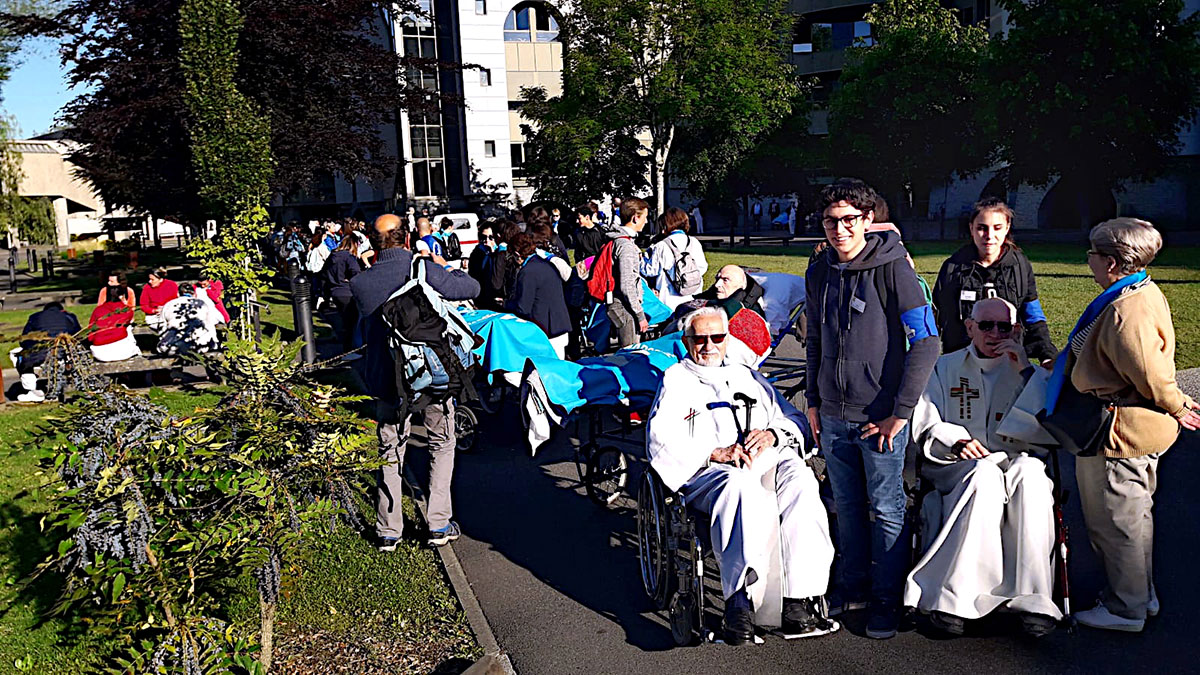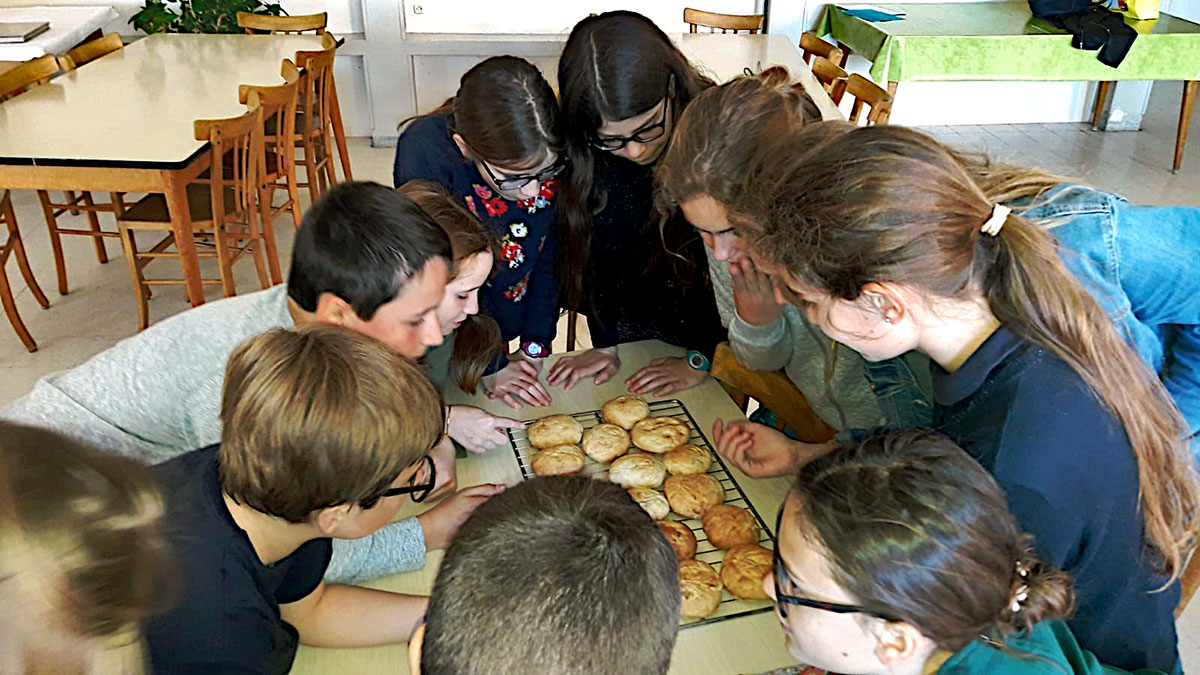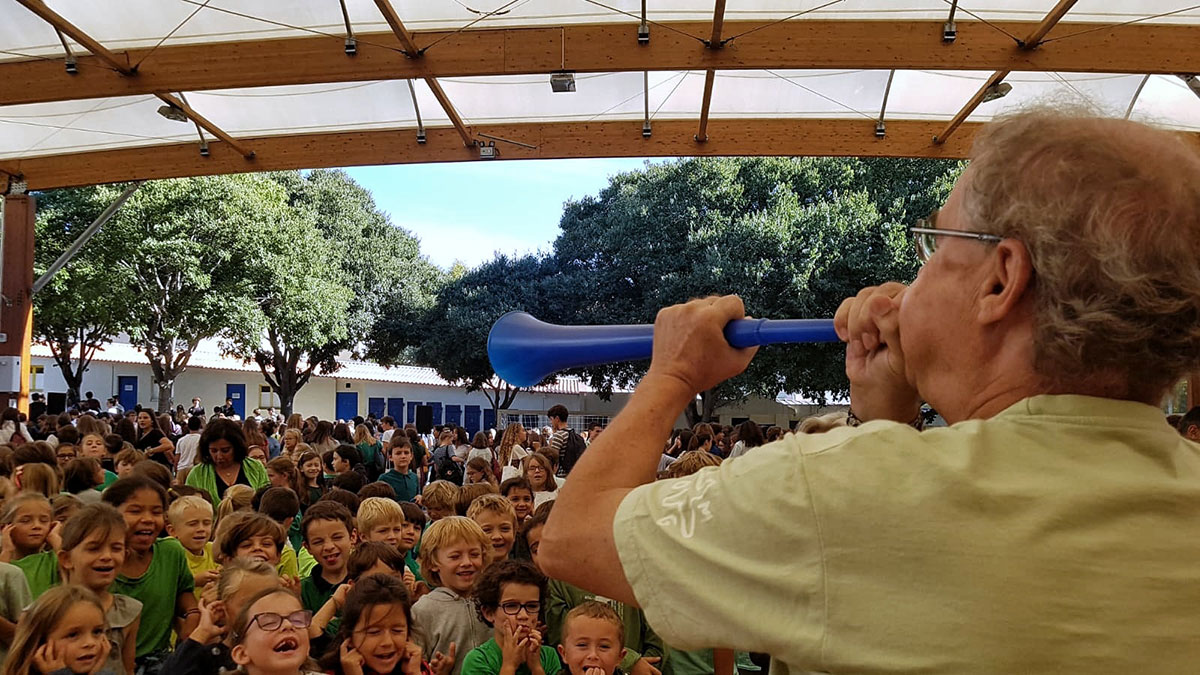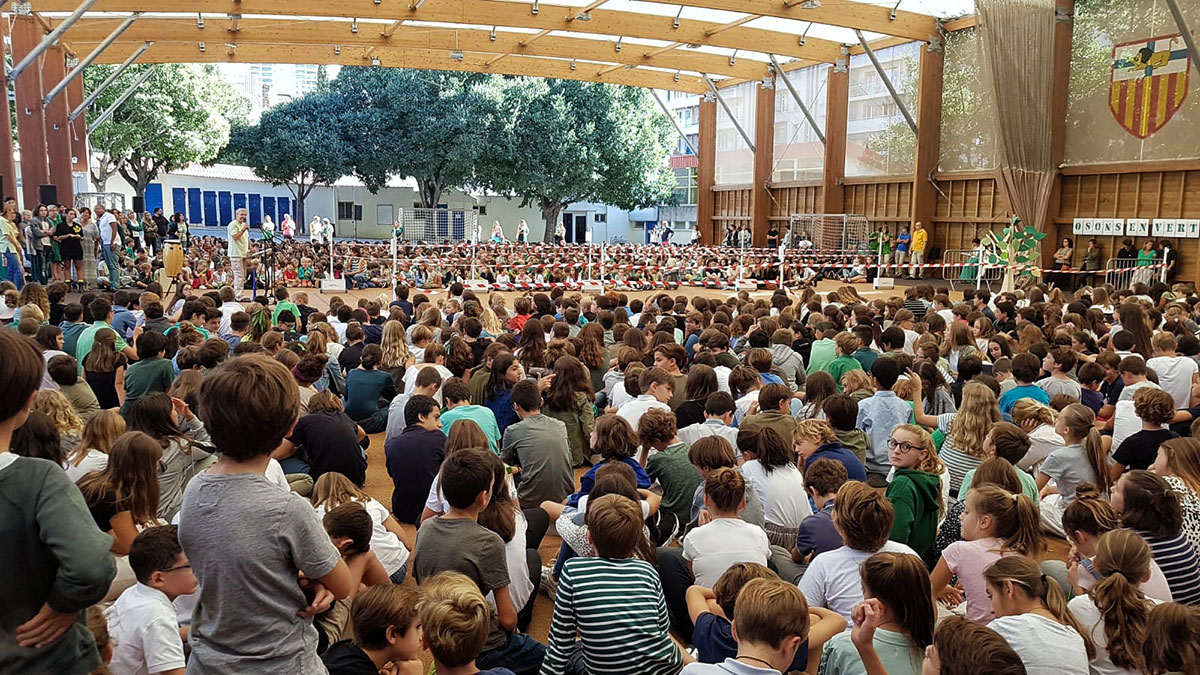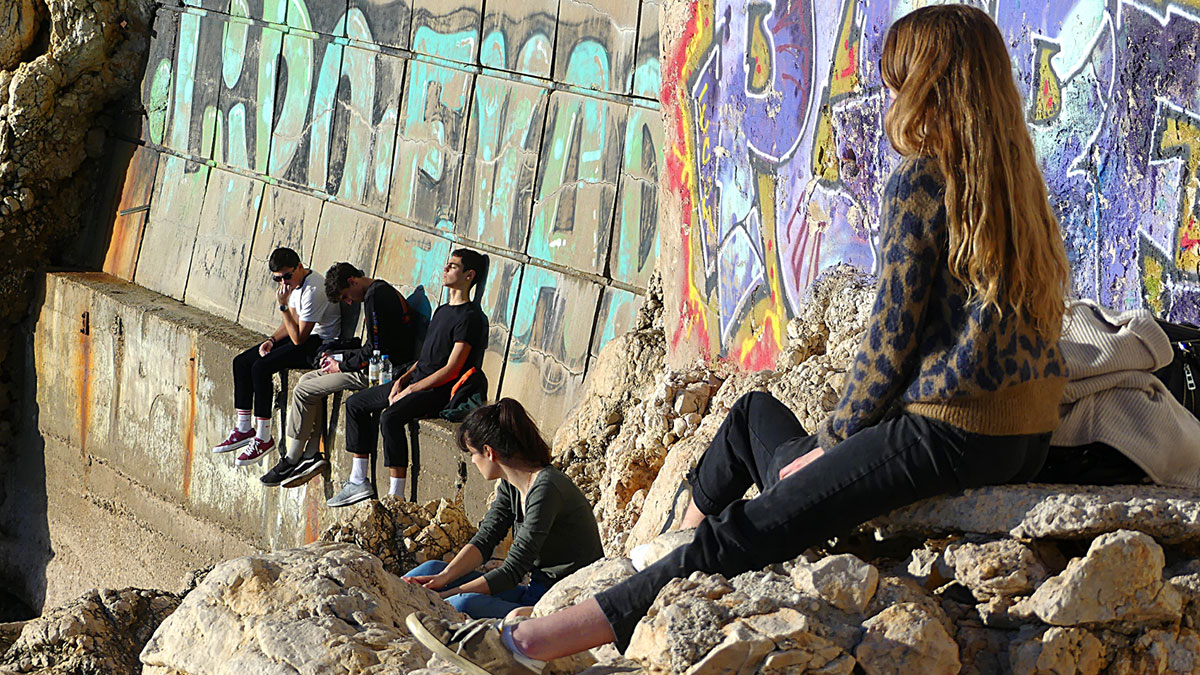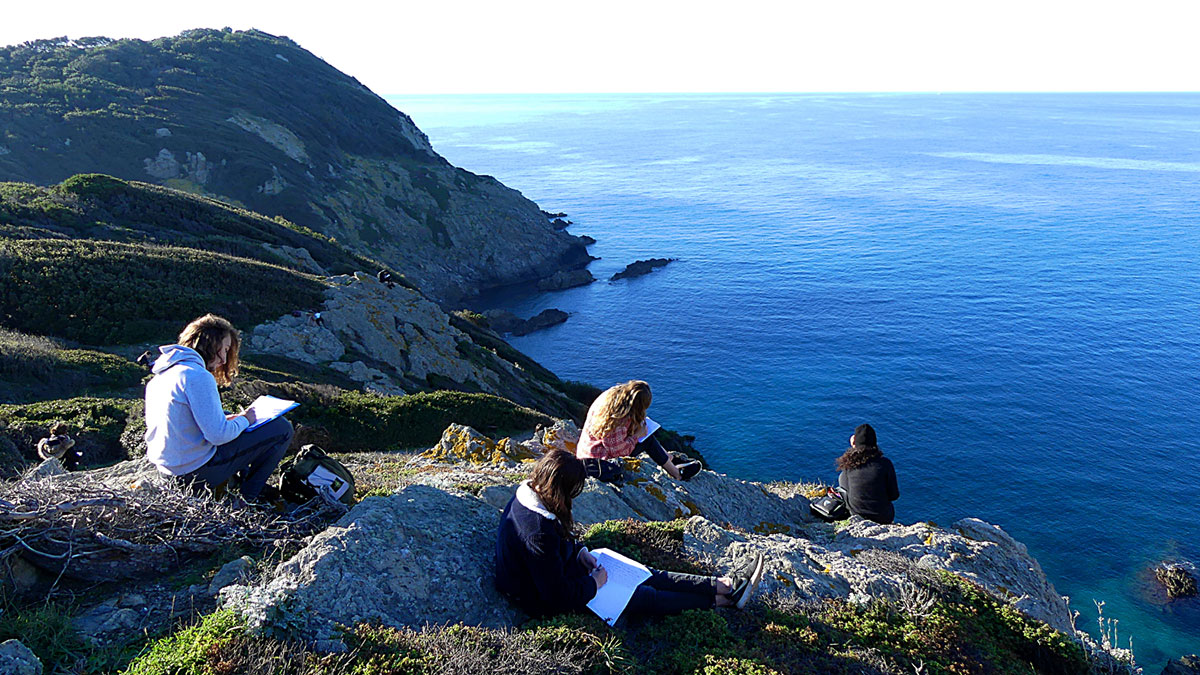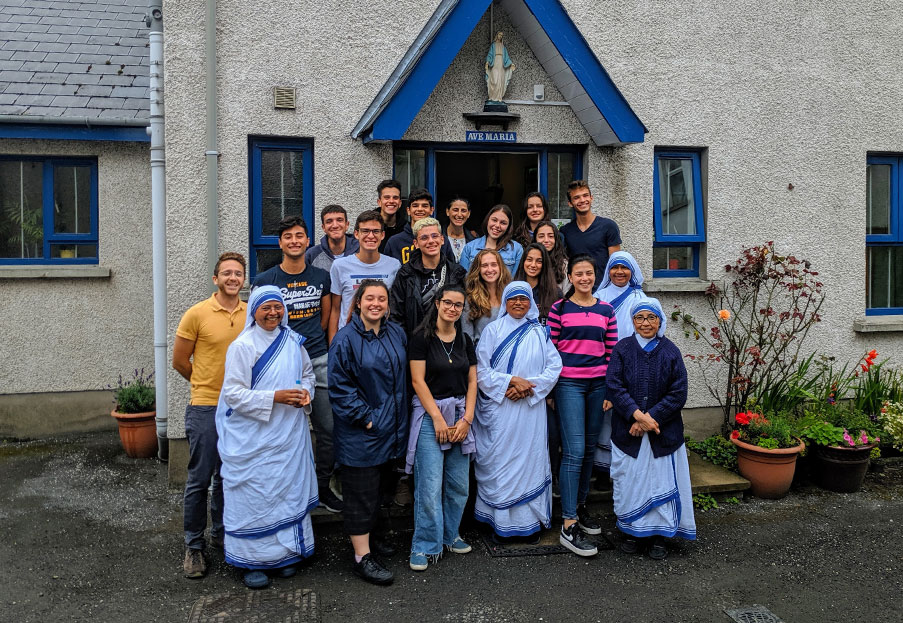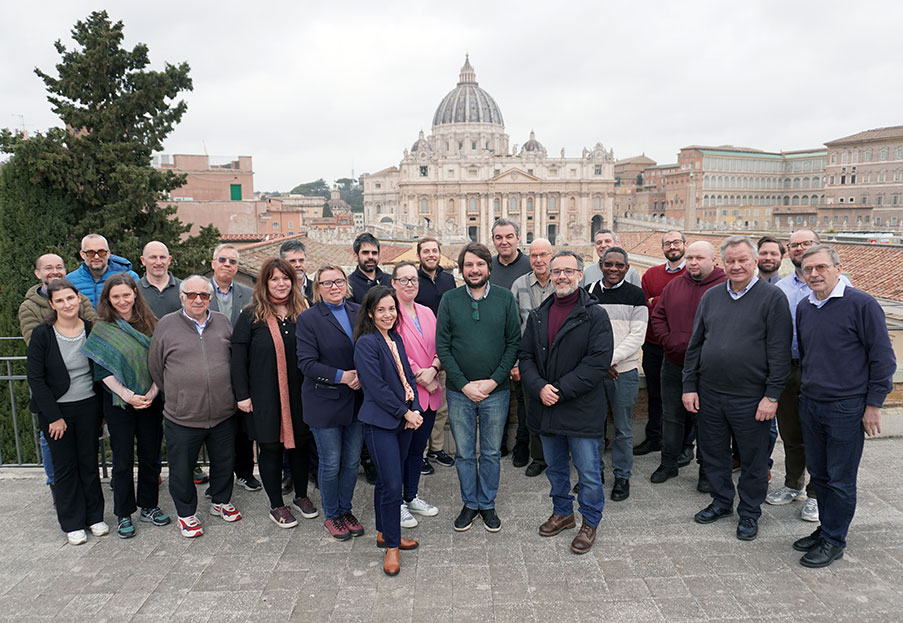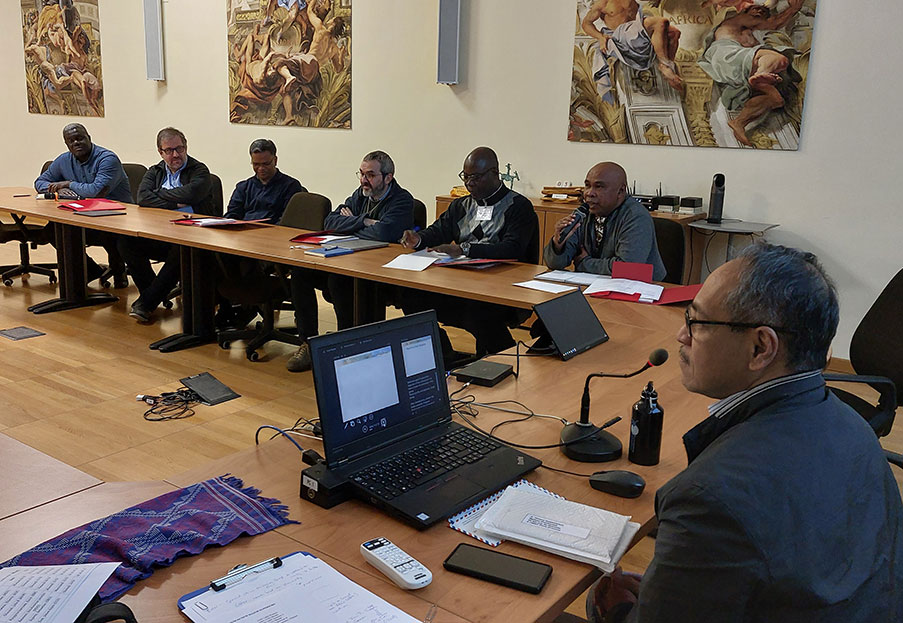Daring to live out the values of the Society of Jesus
The “Into the deep with Ignatius” Gathering in Marseille gave us the opportunity to visit the École de Provence. It is a Jesuit school like so many others in the world, whether in Paris, Calcutta, Buenos Aires, San Francisco or Douala. This one is run by a team of lay people. Returning there later, we met with the school’s director, Ms. Marie-Pierre Chabartier, and asked her how this institution was being affected by the spirit of the Universal Apostolic Preferences of the Society of Jesus. Here is what she shared with us.
We believe that we are an institution - no doubt
like many other Jesuit schools in a worldwide network - that “dares” to put
into practice the values of the Society of Jesus. We do this first by
accompanying our students in the simplicity of who they are when they come to
us. Then, throughout their school years, we try to counsel them in their
discernment. Our aim is to help them make the right choices for their future; so
that they become talented people who know how to be at the service of others.
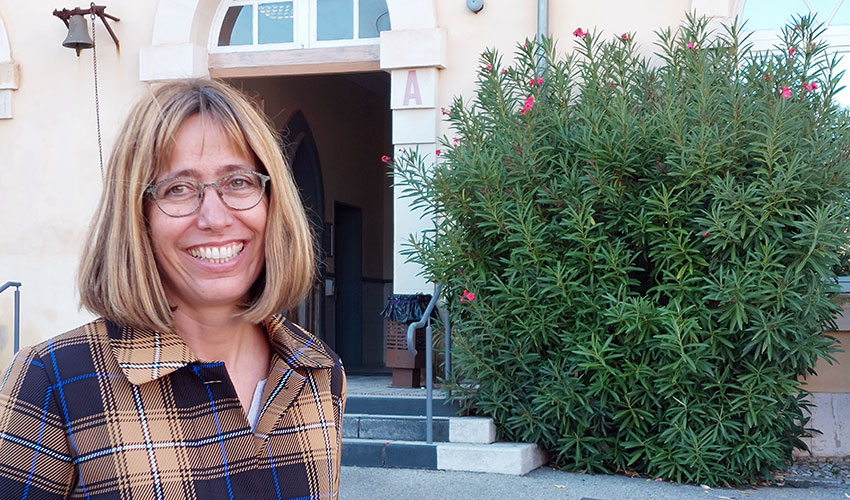
We are a Catholic school linked to the Society of Jesus, so the students have opportunities to receive the word of Christ in complete freedom. Our Pastoral Service is in charge of human formation and celebrations. Any child or teenager who wants to continue his or her journey of faith and receive the sacraments can do so with the help of our pastoral ministry team and our chaplain.
Tell us about your students. What tensions and dreams are they experiencing? Is there anything that sets them apart from other teenagers in the world today?
I
don’t know if students in other countries are under as much pressure as ours:
pressure from society, pressure from parents, pressure from the fear of
failure. Our students are anxious and we are constantly trying to listen to
them, guide them and encourage them, so that they can decide what their
priorities are. Fear of the future is at the centre of their concerns, and this
can prevent them from really listening.
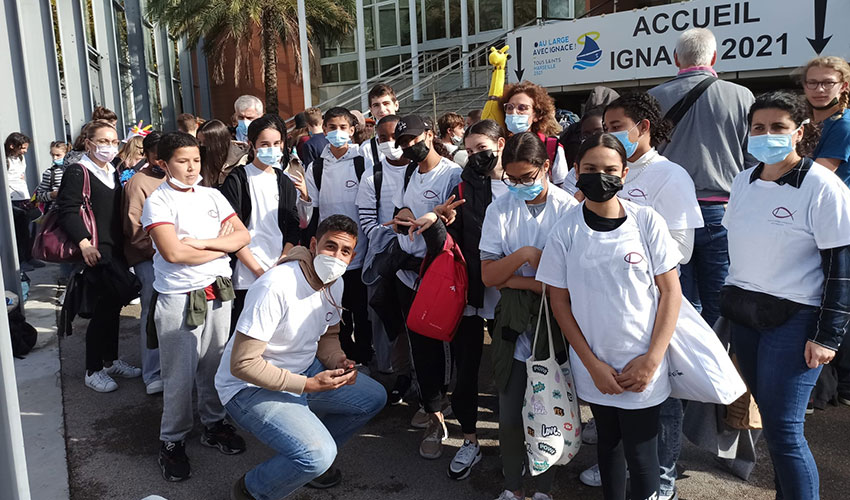
More broadly, and considering the multicultural character of Marseille, the students of Provence learn quickly to listen to each other, to accept the opinion of others, and also to respect their beliefs. We have communal moments that we call “temps forts” (intense times) that bring the school together around specific themes.
You have chosen to get involved in a project with the Collège Saint Mauront. Tell us what led you to this decision and, above all, what the relationships are like between the two institutions - including between the students.
I used
to be head of a school in the northern part of Marseille, a district that does
not have a good reputation. I was moved by the desire these kids had to meet
other people, but I also sensed their fear of meeting people different from
them. The Jesuits urge us to go beyond borders, to try to make divisions
disappear by meeting together and sharing. So we have gradually been trying to organize
shared activities between our students and those of Saint Mauront. We have run
races together, visited ships together, performed drama together. Students from
here help the younger ones from Saint Mauront with their homework; they show
them around Marseille and, of course, they play football with them (a true
religion shared by all the people of Marseille).
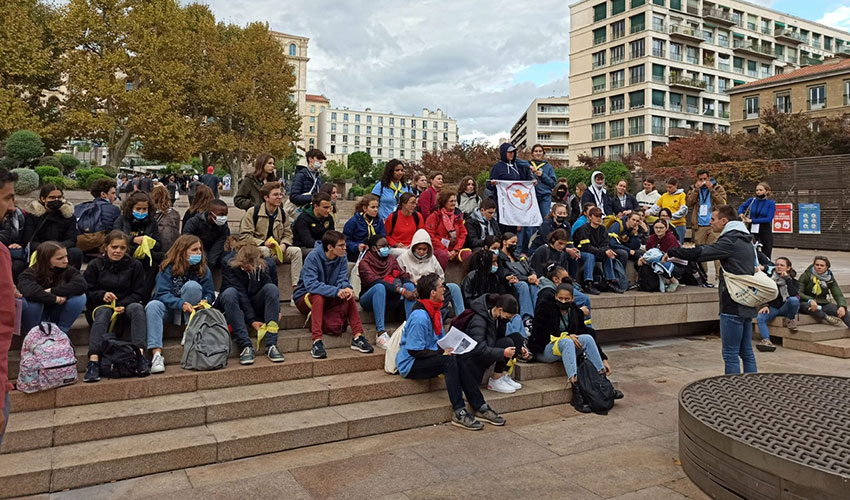
On a personal level, what do you, as an Ignatian, get out of your involvement in education within a Jesuit tradition?
I
feel tremendously supported by my connection with the Jesuits! It is an
invitation to go against the grain of global politics, where everyone is
turning inward and retreating behind protective walls. The Jesuit project for
associated establishments like ours “dares” to encourage people to go out towards
others. For this I am grateful every day, and I try to participate with all my
strength and energy. I hope to be able to contribute something to the rich
meaning the Society gives to teaching, so that our young people will become men
and women who are actors in their own lives, ready to serve others and to care
for the natural environment that we all must protect. My desire is that my
students be responsible. If they
are, I will have achieved something. My faith helps me to commit myself to this
task at every moment, even when I have doubts!
